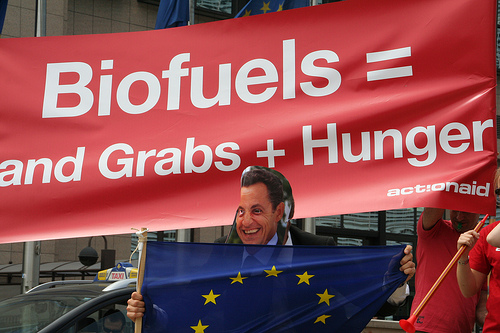
The Commission says it will conduct an impact assessment which may result in changes to existing legislation.
One of the concerns over biofuels is that part of the additional demand will be met through an increase in the amount of land devoted to agriculture worldwide. This could have as consequence an increase in emissions associated with the conversion of land indirectly.
“The potential effects of indirect land use need to be properly weighed in our biofuels policy. It is in our interest to investigate this seriously and ensure to have a legislation that avoids negative side effectsâ€, said Energy Commissioner, Günther Oettinger.
His view is echoed by Connie Hegegaard, the EU’s Climate Action Commissioner. “We have to ensure that the biofuels we promote deliver clear greenhouse gas savings. Although we have developed robust sustainability criteria for their production, we must not ignore any unwanted impacts that may be caused globally as a result of the additional demand. Action in the field should follow a precautionary approach.”
The report is the result of two years of analytical work and consultations with the public and experts. The Commission intends to present a list of new ‘policy approaches’ to deal with the issue by July 2011, possibly accompanied with a legislative proposal for amending the Renewable Energy and Fuel Quality Directives.
Current legislation
The 2009 Renewable Energy and Fuel Quality Directives set targets of a 10% share of renewable energy in the transport sector and a 6% greenhouse gas reductions for fuels used in the transport sector in 2020. Biofuels are expected to make a significant contribution towards these targets.
The Directives impose sustainability criteria that must be complied with by biofuels and bioliquids, including protection of high biodiversity areas and carbon sinks such as forests and wetlands.






2 Comments